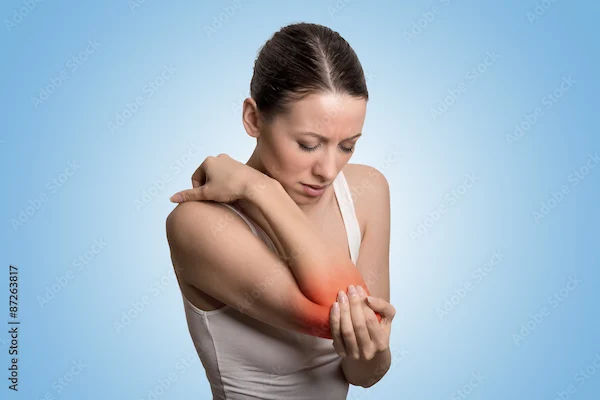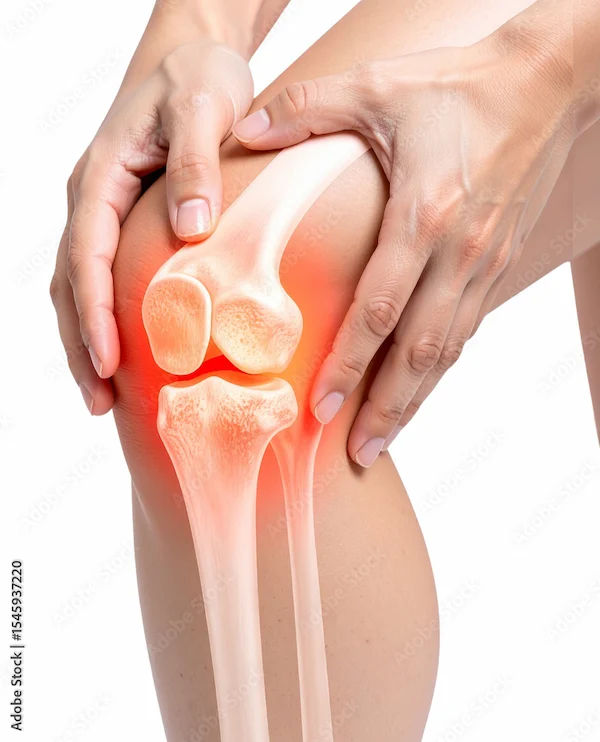Ulnar Side Wrist Pain: Causes and Treatments
know about ulnar side wrist pain, causes, symptoms, diagnosis and treatment options.

Written by Dr. Dhankecha Mayank Dineshbhai
Reviewed by Dr. D Bhanu Prakash MBBS, AFIH, Advanced certificate in critical care medicine, Fellowship in critical care medicine
Last updated on 13th Jan, 2026

Introduction
Wrist pain can be frustrating, especially when it affects your daily activities. If you're experiencing pain on the ulnar side of your wrist (the side where your little finger is), it could be due to several reasons. This article will help you understand the possible causes, symptoms, and treatments for ulnar-sided wrist pain in simple terms.
What is Ulnar Side Wrist Pain?
The ulnar side of the wrist refers to the outer edge where the ulna bone (one of the two forearm bones) connects to the wrist. Pain in this area can range from mild discomfort to severe, sharp pain that affects movement.
Consult a top orthopaedic for the best advice
Common Causes of Ulnar Wrist Pain
Several conditions can lead to pain on the ulnar side of the wrist. Some of the most common include:
1. Ulnar Impaction Syndrome (UIS)
Occurs when the ulna bone is slightly longer than the radius (the other forearm bone), causing extra pressure on the wrist bones.
Leads to wear and tear of cartilage, resulting in pain and stiffness.
2. Triangular Fibrocartilage Complex (TFCC) Injury
The TFCC is a cartilage structure that stabilises the wrist joint.
A tear or injury to this area (from falls, repetitive movements, or trauma) can cause sharp pain, clicking sounds, and weakness in the wrist.
3. Wrist Sprains or Strains
Overstretching or tearing of ligaments due to sudden twists or impacts.
Common in athletes or people who perform repetitive wrist motions.
4. Arthritis (Osteoarthritis or Rheumatoid Arthritis)
Osteoarthritis – Wear and tear of joint cartilage over time.
Rheumatoid Arthritis – An autoimmune condition causing joint inflammation.
Both can lead to stiffness, swelling, and pain in the ulnar wrist.
5. Ulnar Nerve Compression (Cubital Tunnel Syndrome)
The ulnar nerve runs near the wrist and can get compressed, causing tingling, numbness, or pain.
6. Fractures or Bone Injuries
A fall or direct impact can cause fractures in the ulna or small wrist bones.
Symptoms to Watch For
The symptoms of ulnar side wrist pain include:
Pain on the little finger side of the wrist, especially when gripping or twisting.
Swelling or tenderness around the wrist.
Clicking or popping sounds when moving the wrist.
Weakness in the hand, making it hard to hold objects.
Numbness or tingling in the little and ring fingers (if nerve-related).
Diagnosis: How is Ulnar Wrist Pain Identified?
If you have persistent pain, a doctor may recommend:
Physical Examination – Checking for tenderness, swelling, and range of motion.
X-rays – To detect bone abnormalities or fractures.
MRI or CT Scan – For soft tissue injuries like TFCC tears.
Ultrasound – To assess ligament or tendon damage.
Treatment Options
1. Rest and Activity Modification
Avoid activities that worsen pain (e.g., heavy lifting, typing for long hours).
Use a wrist brace or splint to stabilize the joint.
2. Ice and Anti-inflammatory Medications
Apply ice packs for 15-20 minutes to reduce swelling.
Over-the-counter pain relievers (like ibuprofen) can help with inflammation.
3. Physical Therapy
Strengthening and stretching exercises improve flexibility and reduce strain.
A therapist can guide you on proper wrist movements.
4. Injections (Corticosteroids)
For severe inflammation, a doctor may suggest steroid injections to reduce pain.
5. Surgery (If Needed)
Arthroscopy – A minimally invasive procedure to repair TFCC tears.
Ulnar Shortening Osteotomy – If ulnar impaction syndrome is present, a small part of the ulna may be removed to relieve pressure.
Prevention & Lifestyle Tips
The prevention and lifestyle tips include:
Strengthen Your Wrists – Gentle exercises (like wrist curls) can improve stability.
Ergonomic Adjustments – Use wrist-friendly keyboards or tools if you work long hours on a computer.
Avoid Overuse – Take breaks during repetitive tasks (e.g., typing, playing sports).
Wear Protective Gear – If playing sports, use wrist guards to prevent injuries.
When to See a Doctor?
Consult a specialist if:
Pain lasts more than a few weeks.
There’s significant swelling or deformity.
You experience numbness or weakness in the hand.
Final Thoughts
Ulnar wrist pain can interfere with daily life, but with proper care, most cases improve with rest, therapy, or medical treatment. If your symptoms persist, don’t ignore them—early diagnosis can prevent further damage.
Consult a top orthopaedic for the best advice
Consult a top orthopaedic for the best advice

Dr. Anil Pradeep Jadhav
Orthopaedician
23 Years • MBBS MS (Ortho)
Nashik
Apollo Hospitals Nashik, Nashik
(25+ Patients)

Dr. Rupam Chowdhury
Orthopaedician
10 Years • MBBS, DNB (Ortho.)
Kolkata
MCR SUPER SPECIALITY POLY CLINIC & PATHOLOGY, Kolkata

Dr. Suraj Prakash
Orthopaedician
5 Years • MBBS, MS (Ortho)
Bengaluru
Apollo Clinic, Indiranagar, Bengaluru

Dr. Padam Singh Gautam
General Physician/ Internal Medicine Specialist
43 Years • M.B.B.S (WARDHA M. S.), F.A.G.E. (MANIPAL), F.A.I.M.S. (Pb.), M.A.I.M.S. (Pb.), M.R.S.H. (LONDON)
Noida
Dr Padam Singh Gautam Fracture Clinic, Noida

Dr. Susheel B
Orthopaedician
13 Years • MBBS, MS, Ortho Fellowship in Trauma ( Germany) Fellowship in Arthroscopy and Arthroplasty ( Switzerland)
Bengaluru
Apollo Medical Center, Marathahalli, Bengaluru



